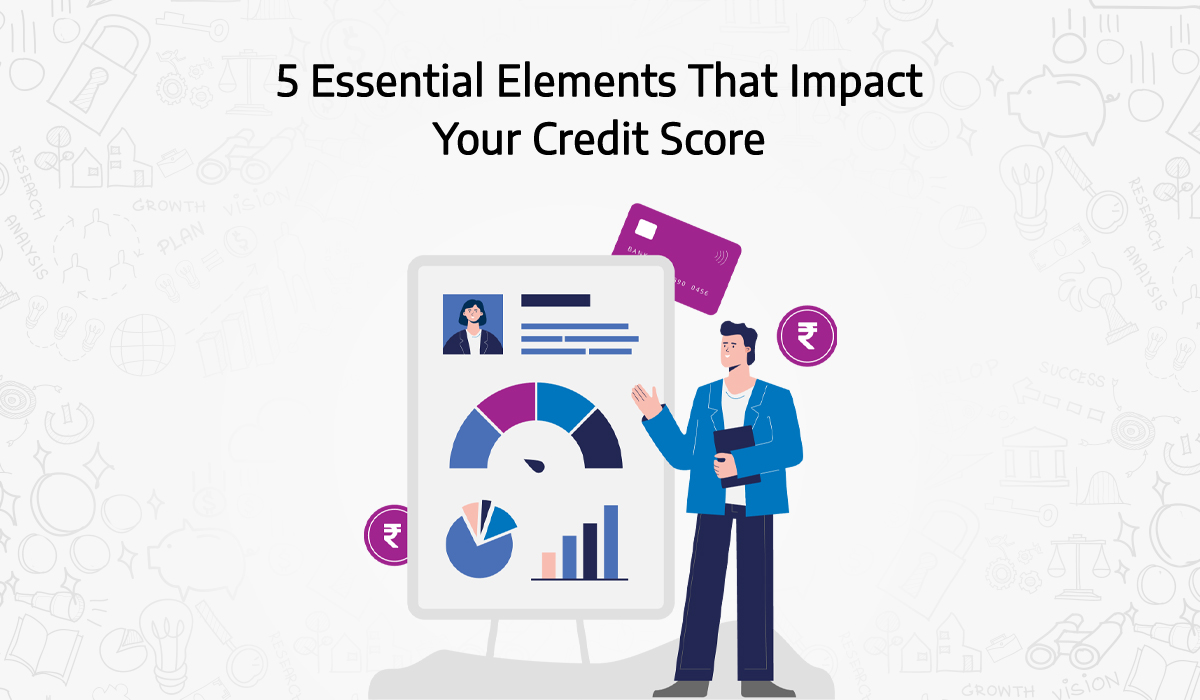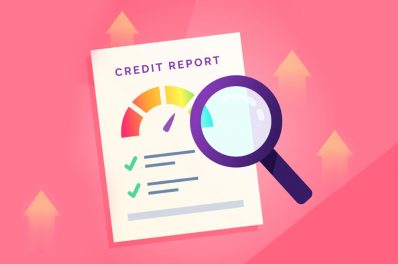
When you apply for a loan, your lender will look at your credit score to check your creditworthiness before deciding whether they should approve your loan or not, how much amount they can sanction, and at what rate of interest.
Lenders want to ensure that you are responsible for your finances and have enough repayment capacity to pay your loan EMIs on time. Ranging between 300 and 900, your credit score represents your financial stability and credit management habits.
These are the 5 crucial factors that matter the most.
1. Payment History
When lenders receive a loan application, they have one thing on their mind – will they get it back? Your payment history affects your credit score to a great extent, as it determines whether you can be trusted for loan repayment. This factor considers several other factors, like:
- Do you pay your bills on time? Late payments can negatively affect your score.
- If you made a few late payments, how often have you been late when it comes to payments in the past 30, 60, or 90 days? The later you pay, the worse your credit score gets.
- Did any account go to collections? Collections serve as a red flag for your potential lenders.
- Do you have any debt settlements, charge-offs, foreclosures, lawsuits, or bankruptcies against you? These are most dangerous for your credit score when they appear on your credit report.
If you missed your payments three years ago and have been maintaining your payments since, you will be considered a lower-risk borrower than the one who recently missed a payment.
2. Amount You Owe
Your credit utilization ratio plays a crucial role. It measures the amount you owe compared to the credit limits available to you. These are some crucial factors to consider:
- How much have you used from the total credit available? Although less is better, it doesn’t need to be 0% to have a high credit score. You must use some percentage of your credit limit and pay it off on time to show your lenders that you are responsible for your payments.
- Your credit mix and the amount you owe on different account types, such as personal loans, SME loans, and credit cards? The more diverse your credit mix is, the higher your credit score will be. Lenders want to check how well you are managing all your accounts responsibly.
- What is the total amount you owe compared to the amount available on installment accounts? Again, less is better. An individual having ₹5,000 on their credit card with a ₹50,000 limit will seem to be more responsible than another individual who owes ₹30,000 on the same limit.
3. Duration of Your Credit History
How long you have been using and managing credit also plays a crucial role in calculating your credit score. How old is your oldest account? What is the median age of your accounts? For how long have you been managing your financial obligations? The longer your credit history, the more helpful it would be.
However, it would help only if it is not marred by negative items and late or missed payments. Many financial experts suggest leaving old accounts open even if you are not using them anymore. The age of such accounts will itself help in boosting your credit score. Closing old accounts can see an overall decline in your score.
Also Read: How to Build a Credit Score with No Credit History?
4. New Credit
Your new accounts are important factors that affect your credit score. The scoring models want to check all new accounts you have recently applied for and for how long you have not opened any new account.
When you apply for a new loan or credit card, lenders perform hard enquiry on your credit profile that negatively affects your credit score.
The reason being that if you are opening several new accounts in a short period, you are posed as hungry for credit. Most people do this only when they are going through a cash crunch, and in the near future, they may not be able to repay their loan.
Also Read: Beware of These 5 Habits That Are Reducing Your Credit Score
5. Credit Mix
Another crucial factor that affects your credit score is the types of credit you have taken so far, including credit cards, personal loans, SME loans, and mortgages. The number of total accounts you hold also affects your score. Check your credit score and see where you stand.
For any queries, find us on Facebook, Instagram, LinkedIn, Twitter, or WhatsApp.You can also reach us at hello@clix.capital.com or call us at +91-120-6465400.T&C Apply*.







